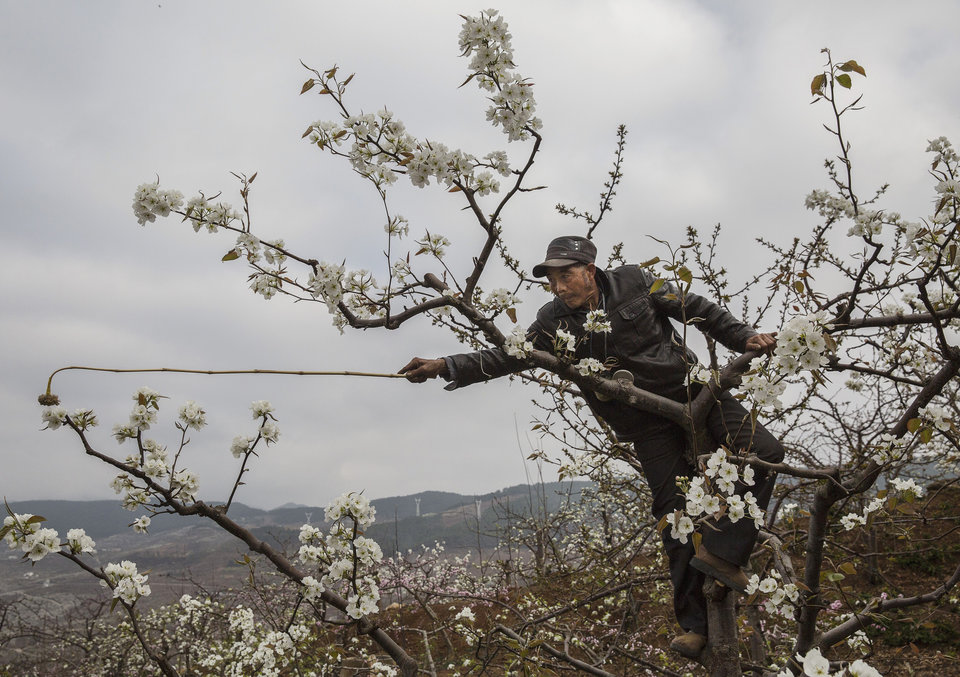Human pollinators do bees’ work in rural China
The world’s pear capital, Hanyuan county in China, is suffering the effects of pesticide use which has led to a drastic reduction in the area’s bee population. To avert the crisis, farm labourers have resorted to pollinating fruit trees artificially, by transferring pollen from male flowers to female flowers to fertilise them.
A UN report in February highlighted the plight of plummeting bee populations and warns that it could cost “hundreds of billions of dollars” worth of crops every year. Low labour costs in rural China mean that hand pollination can actually cost less than renting bees. However, as labour costs start to rise and fruit yields drop, the long-term viability of this form of manual pollination is questionable. It is thought however, that this practice could catch on in other parts of the developing world.



